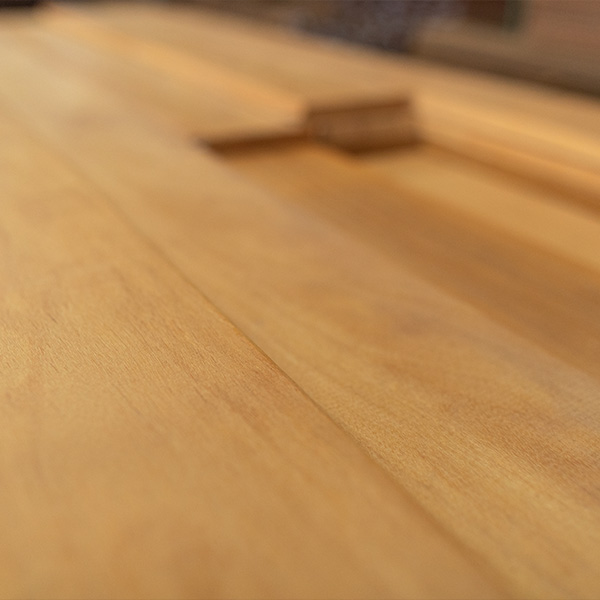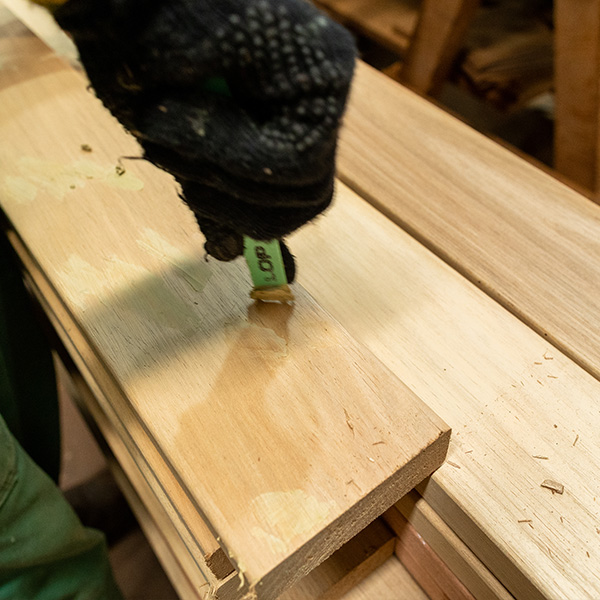Canada is home to four different species of white pine, which are found throughout the length and breadth of the country; a testament to the country’s natural and floral diversity. Both western and eastern ones cut imposing figures, with their average height and breadth being around 30m and 1m respectively. Similar to most conifers, these trees generally have a conical structure and trademark ‘needles’ or leaves.
The lumber procured from these trees is an integral raw material within various manufacturing and construction industries, and it is particularly useful in the production of furniture pieces, trims, doors, and window frames. It is prudent to procure the lumber for your furniture from a reputed and established brand, such as Tropical Forest Products, as we source premium quality lumber from respected sources in an ethical manner. Read on to know all about the White Pine and how it’s a perfect addition to your feedstock.

The White Pine: Unmissable Features
White pines are often categorized as a ‘soft’ and stable wood type, which boasts a uniform and straight-grained texture, and are also resistant to long-term issues such as warping or bending of wood. It offers lower levels of resistance and protection against rot and decay than some of the other domestic woods.
Despite such lumber’s relatively lower density, the wood type possesses a surprisingly good strength to weight ratio; and its other remarkable features include its versatility as it responds well to steam-bending techniques and exhibits excellent nail-holding capabilities.
Additionally, this lumber also produces visually appealing finishes, but only when sanded and sealed properly, as without that you run the risk of resin or its residue flowing or bleeding out to the wood’s surface. All of its aforementioned features coupled with its widespread availability in various shapes and sizes as well as its affordable prices make it a sought-after wood type, and also explain why it is also colloquially referred to as the ‘Grand White Pine’.
- At Tropical Forest Products, you find a wide selection of softwood. Our staff finds the lumber that best meets your requirements.

The Eastern type
Eastern white pines, as the name suggests, are found extensively in the country’s eastern areas such as Ontario, Quebec, and Newfoundland. Generally, this type possesses lighter, red-brown-hued heartwood along with light-colored sapwood as well as a straight-grained texture. Its aesthetic appeal and quotient are high as it can often be spotted adorning parks, gardens, and other public spaces of eastern cities; with it also being adopted as a Christmas tree in many households, especially because of its high post-displacement needle retention.
Its lumber works well with all kinds of manual and automatic tools, and also responds well to adhesives, staining, sealing, and painting. It enjoys widespread application in the manufacturing of cabinetry, wooden frames, doors, and interior furnishings and trims.

The Western one
Generally, western white pines grow in the regions of Vancouver, Alberta, and British Columbia; however, it can be grown in various different environments, as it responds ideally to mineral and nutrient-rich soil types, such as loamy soils, but can also be grown in regions possessing rocky or sandy soil. It harbors pale yellow-colored sapwood and its heartwood is visually composed of lighter hues of brown, and its lumber may also emit light, resinous aroma.
Similar to its eastern counterpart, the western white pine possesses a straight-grained and even texture. It lends itself perfectly to wood carvings and is widely used in the production of items such as wooden veneers, crates, and even matchsticks. Interestingly, despite being cultivated extensively as construction lumber, it belongs to the moderate-high domestic hardwood price band.
You may also be interested in our Custom Millwork options. Take a look.
Sourcing Different Pines from Tropical Forest Products
Fortunately, both Eastern and Western white pines are available extensively throughout the domestic Canadian markets, with both being labeled as species of ‘least concern’ by the IUCN.
Contact us at (647) 372-2625 to have your queries resolved by our experienced specialists or know more about our range of products and other offerings.




